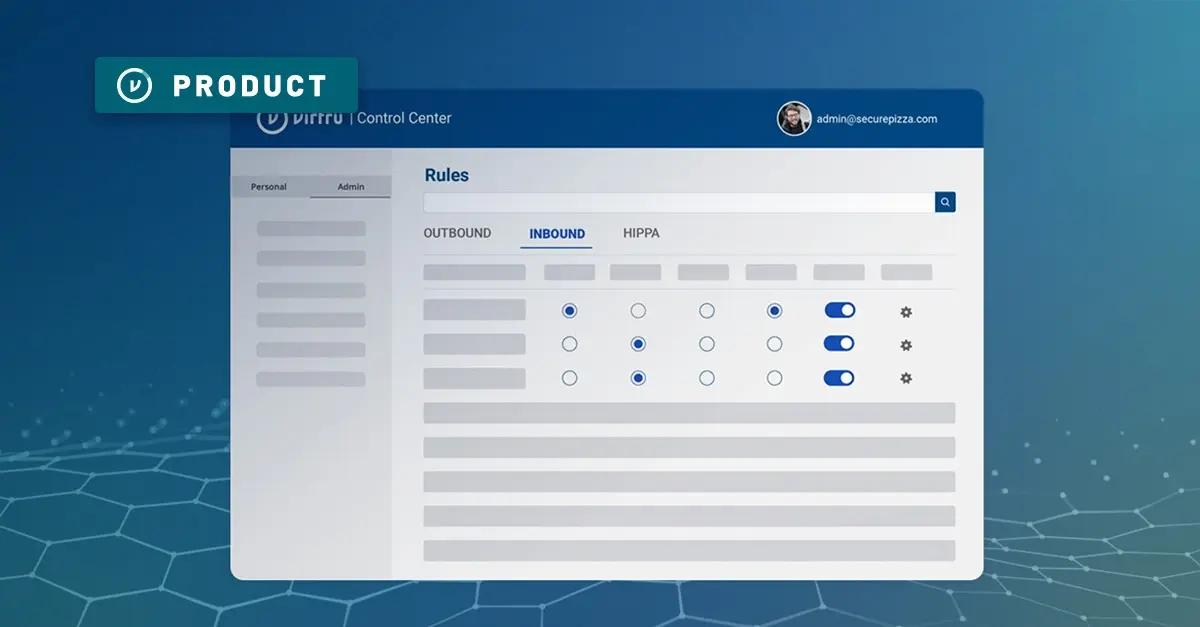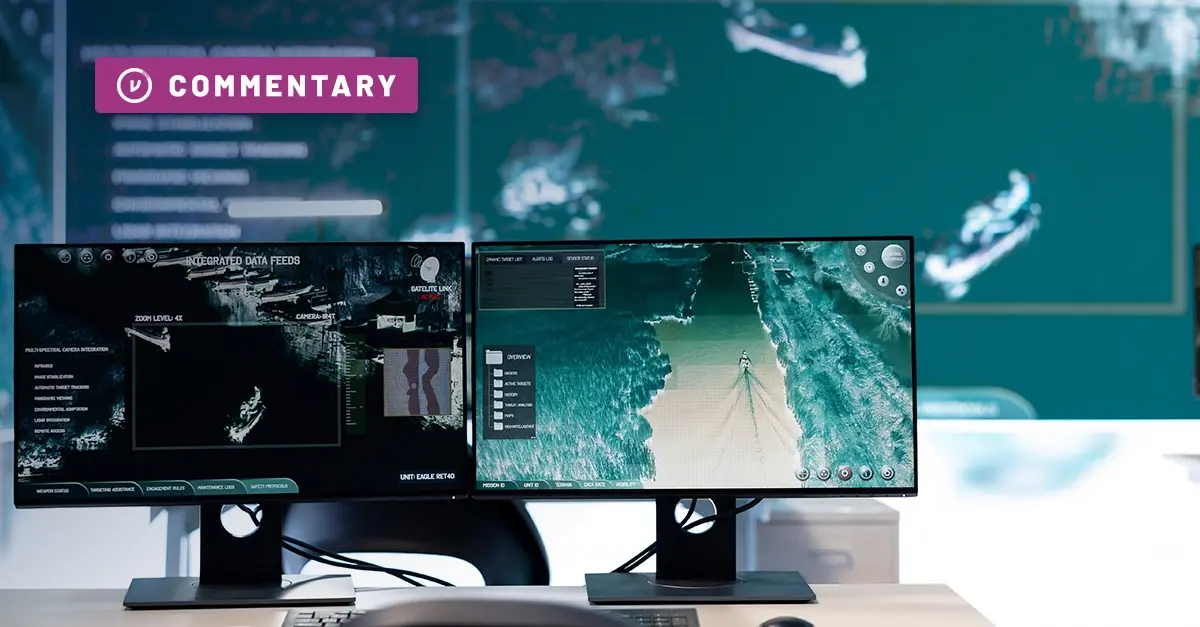Industry Survey: Evolving Perceptions of Privacy and Security
TABLE OF CONTENTS
See Virtru In Action


We often hear about the growing awareness and concern over security and privacy, but how much have individuals’ perceptions really shifted? A recent Pew poll highlights how 8 in 10 Americans feel they have little or no control over their data and they worry about the prevalence of tracking. We wanted to validate for ourselves whether perceptions really are changing, and if so, what some of the causes might be. Importantly, we wanted to assess whether these perceptions shape future expectations of security and privacy.
For this year’s annual Virtru hackathon, my colleague, Jack Britton, and I crafted our own survey on evolving perceptions toward security and privacy. With only 48-hours to conduct and analyze the results, we knew we didn’t have the resources and reach of survey organizations, but we wanted to see what we could accomplish toward achieving any new insights in this space. Fortunately, thanks to our great networks and the power of social media, we had a great response and have some interesting findings to share. We even uncovered robust optimism about the future power of technology to preserve privacy and security.
Security and Privacy Survey Methodology
We opened the 20-question, multiple-choice survey for a 48-hour window during Virtru’s internal hackathon last week. In sum, we received 150 responses through our social media blasts on Twitter and LinkedIn. We wanted to help control for potential biases since our networks likely include security and privacy professionals at a higher percentage than the general population. We found that approximately 42% of respondents are security and privacy professionals, and explored all findings by this division to see if there was a divide.
In general, there were similar perceptions toward security and privacy across the majority of questions, which was a little surprising. Demographically, 57% of respondents self-identified as female, 39% male, 2% non-binary, and 2% did not respond. Respondents were distributed by age as follows: 28% 18-29; 25% 30-35; 21% 40-49; 15% 50-59; 11% 60 or above. In the future, we will consider extending the survey timeframe longer to increase the number of respondents.
Security and Privacy Survey Results
Out of the twenty questions asked, several interesting trends emerged.
Creating a Security Awareness Baseline
Following suit of similar research, we explored replicating a baseline estimate for general security awareness. Through a data reduction technique called factor analysis, our results confirmed previous research that created a baseline awareness score. Through factor analysis of the following six questions, we were able to gauge a baseline level of security awareness, which could be informative for future research on shifting perceptions and awareness of privacy and security.
-
- I seek out opportunities to learn about personal privacy and security protective measures.
- I diligently pursue privacy and security safeguards.
- I am interested in learning more about privacy and security threats.
- I am extremely knowledgeable about all the steps needed to keep my online data and accounts safe.
- I am extremely motivated to keep my online data and accounts safe.
Security and Privacy on the Campaign Trail
Respondents want to hear more discussion about security and privacy during the 2020 campaign. Almost 80% of respondents don’t think this topic is getting sufficient attention in election discussions. As the graph below demonstrates, responses are strongly skewed in favor of more attention given to this topic.

Heightened Level of Concern Over Security and Privacy
When asked if concerns over security and privacy have shifted over the last year, respondents indicated much greater levels of concern. In fact, the responses heavily skewed in favor of more or much more concerned than they were a year ago. 14% of respondents indicated that views did not change at all, and may reflect the security and privacy professionals who already maintain significant awareness. Only 3% of respondents are less or much less concerned.
What Sparked the Change?
Respondents were asked to choose which factors influenced their changing perceptions if indeed their perceptions changed at all. As the graph below demonstrates, last year’s Cambridge Analytica scandal was a significant factor in shifting perceptions, followed by the steady drumbeat of data breaches, entertainment, and media coverage, as well as GDPR and other new regulations. This reinforces a lot of what Virtru has been discussing throughout this year: 2018 was a significant inflection point in growing awareness among individuals and organizations toward security and privacy. High profile breaches continued similar to other years, but the onset of GDPR, as well as nebulous third-party data sharing together, sparked significant public awareness and demands for greater digital security and privacy.

Is There a Difference in Perceptions Toward the Private Sector and U.S. Government?
Respondents generally are pessimistic about the ability of both the U.S. federal government and the private sector to protect data and privacy. Three-quarters of respondents don’t believe the private sector is capable of protecting data privacy, while 70% of respondents believe the private sector is not properly incentivized to protect data. At the same time, the U.S. federal government does not fare much better, as two-thirds don’t believe they can protect data and privacy. Despite growing discussion of a federal data privacy regulation, almost 70% of respondents don’t put much faith in the federal government to effectively regulate data and privacy.
Looking Ahead
Optimistic imaginations of our techno-future often seem like anomalies amidst the endless drumbeat of breaches and declarations that privacy is dead. We asked two questions looking ahead five years: if respondents thought digital privacy would increase or decrease over the next five years and whether they thought technology will enable greater privacy. Over half of the respondents were optimistic that privacy will increase, and over 40% thought technology would enable greater privacy.
This demonstrates a much greater optimism than we had anticipated, and reinforces the need to counter today’s dominant, techno-dystopia headlines and innovate toward a privacy and security preserving techno-future. In fact, this was the dominant motivation driving Virtru’s hackathon. From chatbots to web scanners to our own survey, within 48 hours we saw glimmers of this better future where privacy and innovation go hand in hand. Keep an eye out for these stories on Virtru’s blog into 2020. As we continue to explore these evolving perceptions on security and privacy, we’ll do our part to prove right those 40% of respondents who find it likely or very likely that technology will be a greater privacy enabler into the future.
See Virtru In Action
Sign Up for the Virtru Newsletter










